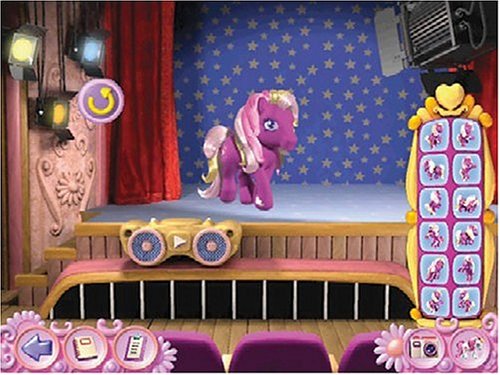My daughter has really gotten into this old “My Little Pony” Hasbro CD-ROM game she’s been playing at a friend’s house. I vaguely remember seeing it on store shelves years ago, but just figured it wasn’t my daughter’s speed. After all, she favors things like Sonic the Hedgehog or The Sims. But apparently, she really likes this My Little Pony game. I would buy it if I could find it. Hasbro doesn’t sell the game online, and no stores anywhere in my area carry it. Sure, there are some cheap copies still available on eBay. Assuming they’re legit.
I could just copy the CD, but I’ve always been very good about keeping licensed software on hand. I wouldn’t normally copy software. But should you if the software is outdated and you can’t buy it anywhere else? For that matter, why shouldn’t there be some expiration on software licenses–say, if the company stops producing or maybe selling the software for three years.
Particularly in the realm of kids software, lots of companies have gone under or sold out several times; the economy hit these small developers hard. So some very good educational software is just languishing out there.
It’s not like there’s been some overwhelming leap in educational software development that means the “Green Eggs and Ham” game I could never get my daughter to play wouldn’t be interesting to a newer crop of kids. Parents might see a goldmine in these cast-offs. So what’s a parent to do?
Your kid plays the game at a friend’s house and wants his or her own copy, but you can’t buy it anywhere because it’s old. Should you copy it?
For companies like Microsoft, which is trying to stamp out casual software piracy, the answer to this question is an important one. Because it is the trading of software in this manner that reinforces the copying and sharing of more expensive software applications. I understand the software companies want to stamp out piracy and so are covetous of their intellectual property.
But should that deny people the opportunity to use that software after the company has cast its intellectual property aside?
Update 10/2009: Hasbro now provides other “My Little Pony” games. But the questions raised here are even more relevant in context of the Google book settlement, which could make available thousands of abandoned titles.
Do you have an ethics story that you’d like told? Please email Joe Wilcox: joewilcox at gmail dot com.
